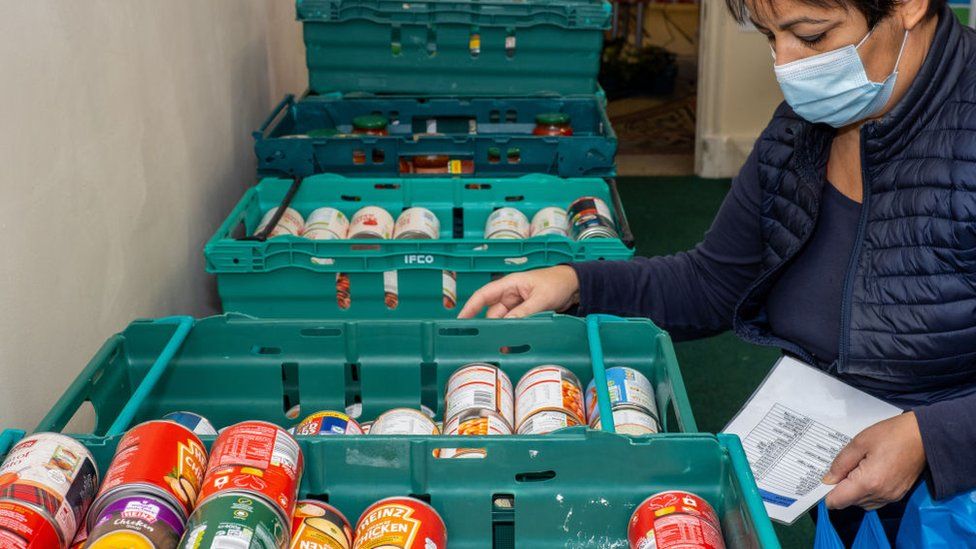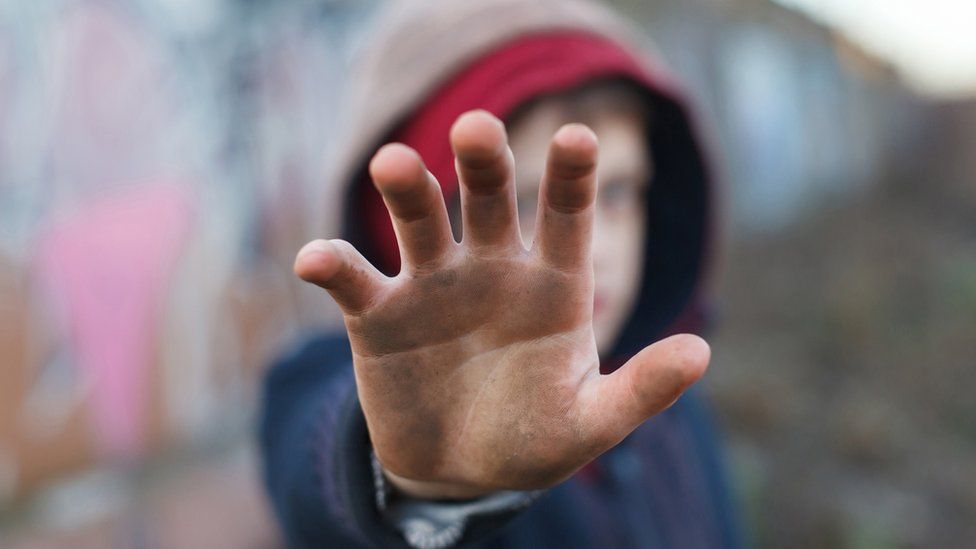
Public spending cuts in Rishi Sunak's Budget mean the chancellor "isn't really levelling with people", the Institute for Fiscal Studies (IFS) think tank has warned.
The Treasury said the cuts, worth £4bn, were "a purely mechanical change", but Paul Johnson of the IFS said they were set to cause more pain.
At the same time, big tax rises were "screeching U-turns", Mr Johnson said.
"Santa Sunak" was now looking more like "Scrooge Sunak", he added.
Meanwhile, "pressure will mount" on Mr Sunak not to cut universal credit by £20 a week after September, Mr Johnson said.
He said that going for such a "cliff-edge reduction" was "remarkable".
'Two Budgets'
In his post-Budget analysis, Mr Johnson highlighted freezes in income tax allowances and rises in corporation tax.
The corporation tax rise to 25% would take the UK "well up the international league table" for revenues, he said, but it was "50-50 at best" whether it would actually happen without additional concessions.
"This was, of course, a tale of two Budgets," said Mr Johnson in response to Mr Sunak's economic plans.
"By the end of the forecast period, we are looking at a fiscal tightening of over £30bn relative to previous plans.
"Take account of the cuts to planned spending announced in the autumn and Santa Sunak, purveyor of billions today, looks more like Scrooge Sunak, cutting spending and raising taxes to the tune of nearly £50bn relative to his pre-pandemic plans of March 2020."
The income tax allowance freezes were set to raise about £9bn, while the corporation tax changes could see revenues rise by more than £17bn by 2025, Mr Johnson said.
He was sceptical that the plans to cut a further £4bn from public spending could be delivered, saying they would cause "additional pain" if they went ahead.
"Now these are not firm plans, but they are the basis for the future public finance estimates. They are a very shaky basis," Mr Johnson said.
"This isn't just a mechanical change and presenting it as such means the chancellor isn't really levelling with people about the choices the government is making to repair the public finances."
Mr Johnson also criticised Mr Sunak's universal credit changes.
"It is, by the way, remarkable that while the chancellor felt the need for a gradual phase out of furlough, business rates support, stamp duty reductions and VAT reductions, he is still set on a cliff-edge reduction in [universal credit] such that incomes of some of the poorest families will fall by over £80 between one month and the next.
"Whatever the case for cutting generosity into the longer term, if you're going to do so, the case for doing it gradually rather than all at once looks unanswerable."
In a BBC interview, the chancellor rejected suggestions that he should have tapered the ending of the £20-a-week universal credit increase in order to minimise its effect on families.
"We have extended it generously and in full, but it's important to remember that it's one of many things that we're doing to support people," Mr Sunak said.
These included increases in the National Living Wage and offering help with council tax payments, he added.

Earlier, the government came under fire from campaigners for doing too little in the Budget to address inequality.
The Joseph Rowntree Foundation and the Resolution Foundation said the cut in universal credit would bring the incomes of benefit recipients down to levels not seen since the early 1990s.
It would also pull half a million people into poverty, just as unemployment was expected to peak.
Mr Sunak's decision to spend even larger sums to support the economic recovery now and put off raising taxes until later was broadly welcomed in the Resolution Foundation's analysis of the Budget.
But it noted that while GDP is set to grow this year by 4%, that might not feed through to better living standards, with wages by the middle of the decade set to remain £1,200 a year - or 4.3% - below where they would have been without the coronavirus pandemic.
Austerity would drag on for some, it added, with day-to-day spending on government departments such as transport and local government set to fall in real terms next year and remain almost a quarter lower than a decade ago.
The Joseph Rowntree Foundation, an anti-poverty charity, said the universal credit changes meant single recipients of it would see their incomes cut by £20 a week, just as the furlough scheme is ended and unemployment was expected to rise to its peak, the foundation said.
It predicted that would pull half a million people into poverty, including 200,000 children, adding that the Budget was silent on helping 700,000 households who have fallen behind on rent because of the pandemic and are now at risk of eviction.
Responding to the Resolution Foundation's analysis, Mr Sunak told the BBC that it had hailed his decision to freeze income tax thresholds as a "progressive measure" and "a fair way to do what we need to do".



Are you receiving universal credit? Share your experiences by emailing haveyoursay@bbc.co.uk.
Please include a contact number if you are willing to speak to a BBC journalist. You can also get in touch in the following ways:
- WhatsApp: +44 7756 165803
- Tweet: @BBC_HaveYourSay
- Upload pictures or video
- Please read our terms & conditions and privacy policy
If you are reading this page and can't see the form you will need to visit the mobile version of the BBC website to submit your question or comment or you can email us at HaveYourSay@bbc.co.uk. Please include your name, age and location with any submission.
https://news.google.com/__i/rss/rd/articles/CBMiLGh0dHBzOi8vd3d3LmJiYy5jby51ay9uZXdzL2J1c2luZXNzLTU2Mjc2OTUz0gEwaHR0cHM6Ly93d3cuYmJjLmNvLnVrL25ld3MvYW1wL2J1c2luZXNzLTU2Mjc2OTUz?oc=5
2021-03-04 11:07:56Z
52781409622088
Tidak ada komentar:
Posting Komentar